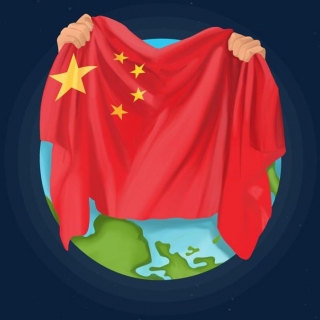


Alarm over China's stranglehold on critical minerals grew on Tuesday as global automakers joined their U.S. counterparts to complain that restrictions by China on exports of rare earth alloys, mixtures and magnets could cause production delays and outages without a quick solution.
German automakers became the latest to warn that China's export restrictions threaten to shut down production and rattle their local economies, following a similar complaint from an Indian EV maker last week.
China's decision in April to suspend exports of a wide range of rare earths and related magnets has upended the supply chains central to automakers, aerospace manufacturers, semiconductor companies and military contractors around the world.
The move underscores China's dominance of the critical mineral industry and is seen as leverage by China in its ongoing trade war with U.S. President Donald Trump.
Trump has sought to redefine the trading relationship with the U.S.' top economic rival China by imposing steep tariffs on billions of dollars of imported goods in hopes of narrowing a wide trade deficit and bringing back lost manufacturing.
Trump imposed tariffs as high as 145% against China only to scale them back after stock, bond and currency markets revolted over the sweeping nature of the levies. China has responded with its own tariffs and is leveraging its dominance in key supply chains to persuade Trump to back down.
Trump and Chinese President Xi Jinping are expected to talk this week, White House spokeswoman Karoline Leavitt told reporters on Tuesday, and the export curbs are expected to be high on the agenda.
"I can assure you that the administration is actively monitoring China's compliance with the Geneva trade agreement," she said. "Our administration officials continue to be engaged in correspondence with their Chinese counterparts."
Trump has previously signaled that China's slow pace of easing the critical mineral export controls represents a violation of the agreement reached last month in Geneva.
Shipments of the magnets, essential for assembling everything from cars and drones to robots and missiles, have been halted at many Chinese ports while license applications make their way through the Chinese regulatory system.
The restrictions have triggered anxiety in corporate boardrooms and nations' capitals - from Tokyo to Washington - as officials scrambled to identify limited alternative options amid fears that production of new automobiles and other items could grind to a halt by summer's end.
"If the situation is not changed quickly, production delaysand even production outages can no longer be ruled out," Hildegard Mueller, head of Germany's auto lobby, told Reuters on Tuesday.
Chinese state media reported last week that China was considering relaxing the curbs for European semiconductor firms while the Ministry of Foreign Affairs has said it would strengthen cooperation with other countries over its controls.
However, rare-earth magnet exports from China halved in April as exporters grappled with the opaque licensing scheme.
Frank Fannon, a minerals industry consultant and former U.S. assistant secretary of state for energy resources during Trump's first term, said the global disruptions are not shocking to those paying attention.
"I don't think anyone should be surprised how this is playing out. We have a production challenge (in the U.S.) and we need to leverage our whole of government approach to secure resources and ramp up domestic capability as soon as possible. The time horizon to do this was yesterday," Fannon said.
Diplomats, automakers and other executives from India, Japan and Europe were urgently seeking meetings with Beijing officials to push for faster approval of rare earth magnet exports, sources told Reuters, as shortages threatened to halt global supply chains.
A business delegation from Japan will visit Beijing in early June to meet the Ministry of Commerce over the curbs, and European diplomats from countries with big auto industries have also sought "emergency" meetings with Chinese officials in recent weeks, Reuters reported.
India, where Bajaj Auto (NSE:BAJA) warned that any further delays in securing the supply of rare earth magnets from China could "seriously impact" electric vehicle production, is organizing a trip for auto executives in the next two to three weeks.
Source: Investing.com
Renewed tensions between the United States and Russia have resurfaced following an incident involving an oil tanker, sparking market concerns about potential disruptions to global energy supplies. Was...
According to a report from the US Department of Labor (DOL) released on Thursday, the number of Americans filing new applications for unemployment insurance rose to 208,000 for the week ending January...
Geopolitical issues have heated up again after statements and political signals from the United States sparked speculation about a possible US takeover of Greenland. Although no concrete action has be...
Private employment rose less than economists expected in December, according to the ADP report. Private employment rose 41,000 (Estimate +50,000) in December, compared with a revised -29,000 in Novem...
Greenland is not only a strategic location, but also a world-class mineral repository. The island holds vast reserves of rare earth elements (REEs), essential for modern technology. These minerals are...
Oil prices stabilized on Thursday (February 12th), as the market reassigned a risk premium to US-Iran tensions despite US inventory data showing swelling domestic supplies. This movement confirms one thing: geopolitical headlines are still more...
Gold prices weakened slightly on Thursday (February 12th), as more solid US employment data reduced market confidence in an imminent Federal Reserve interest rate cut. The strong employment data prompted market participants to shift expectations of...
The Hang Seng Index reversed its downward trend in Hong Kong on Thursday (February 12th), weakening by around 0.9% to around 27,000 after a strong session earlier. This decline halted the momentum of the short term rally, as investors began to...